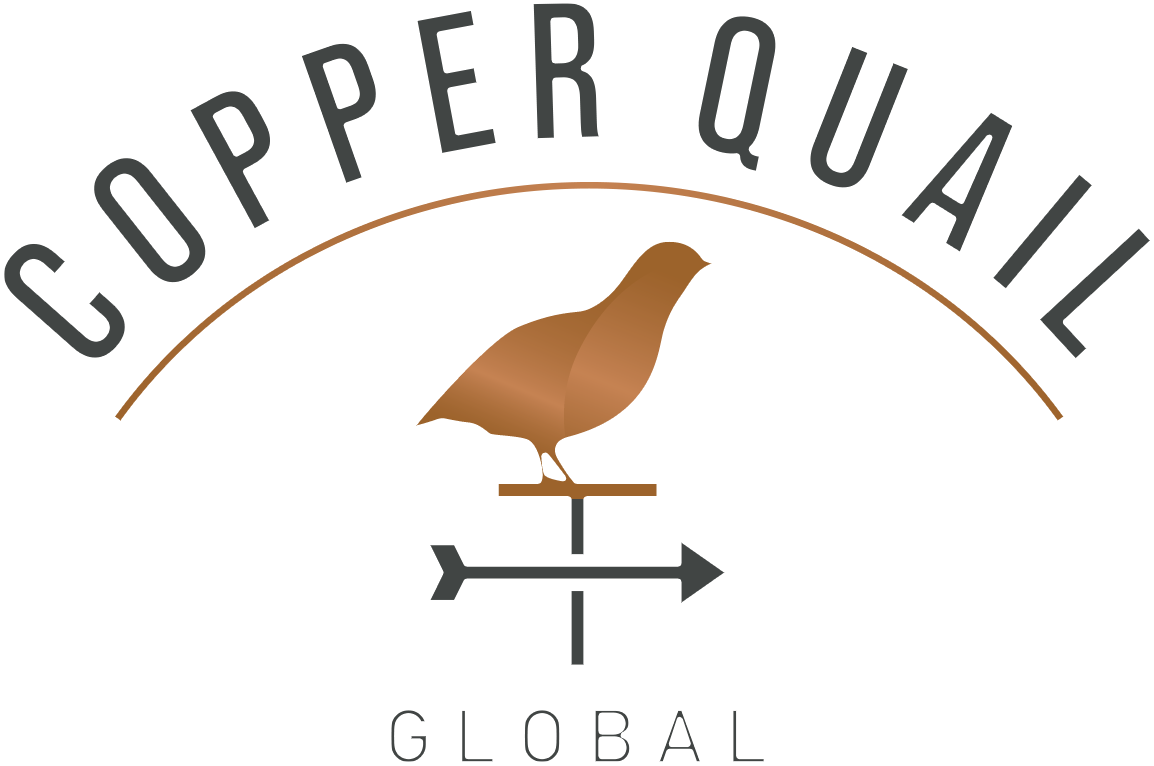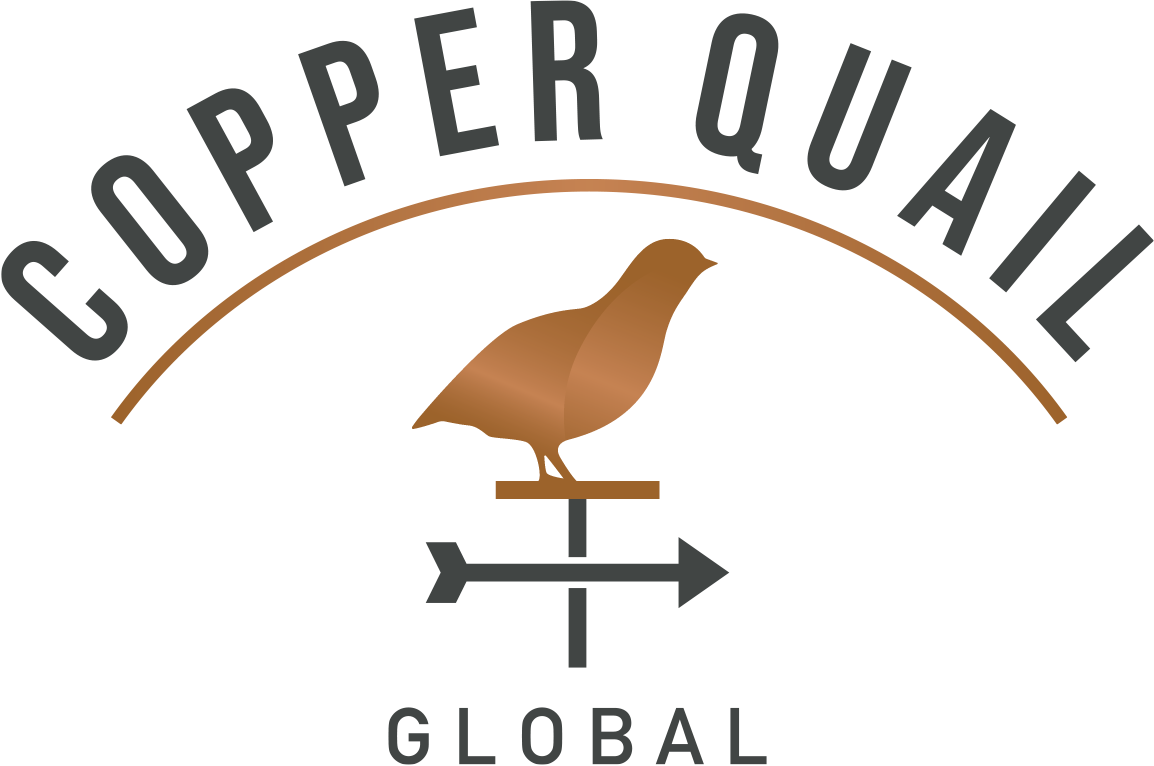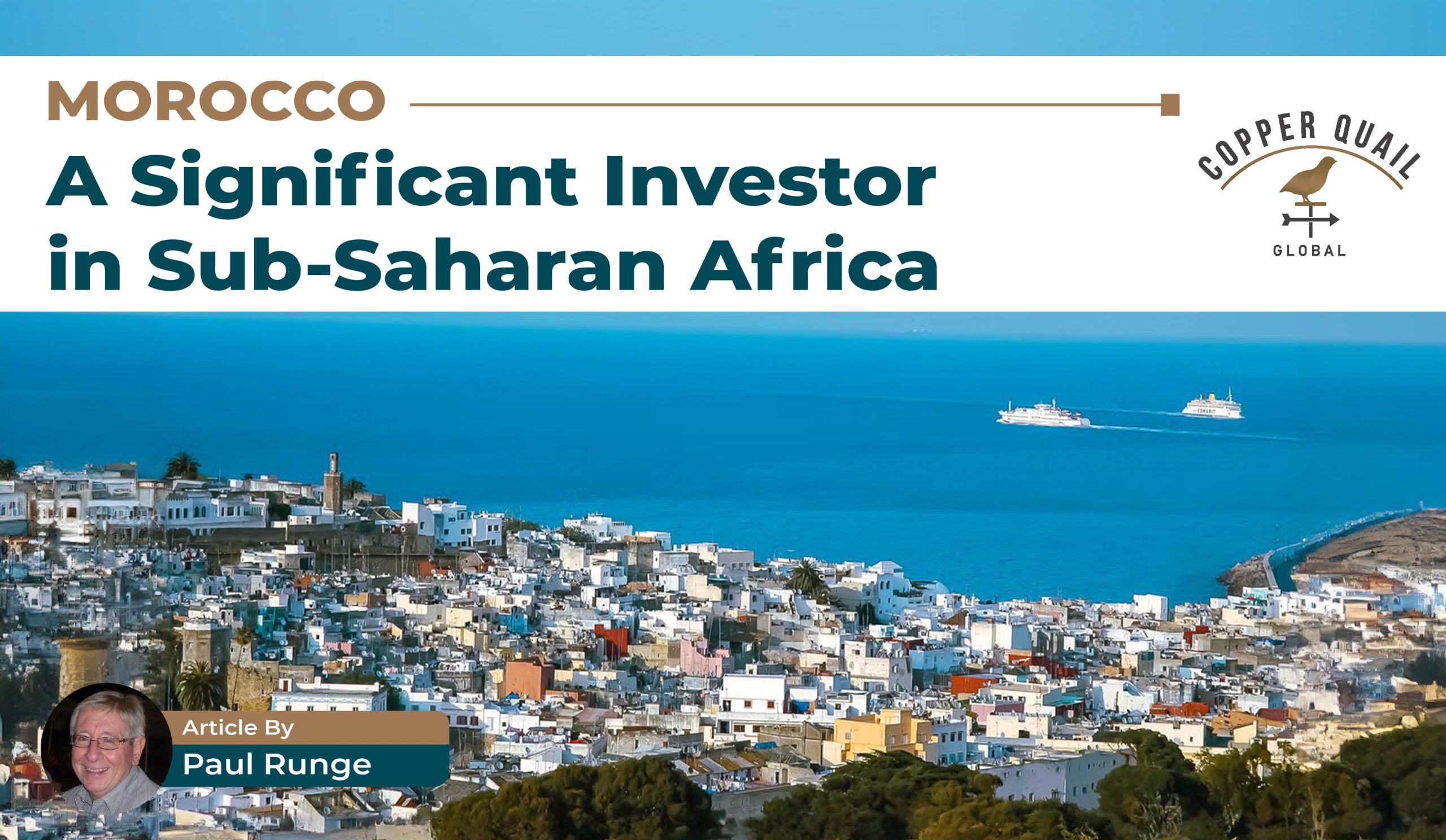MOROCCO: A SIGNIFICANT INVESTOR INSUB-SAHARAN AFRICA
MY INITIAL EXPERIENCES OF MOROCCAN ACTIVITY IN SUB-SAHARAN AFRICAN COUNTRIES…
It was the mid-1980’s, and I had just landed at Malabo Airport in Equatorial Guinea. I was pretty nervous because I had two pockets full of CFA bank notes. My mission was to hand the money to the manager of the farm we were operating on Bioko Island so that he could pay his workers. (There was no banking system in EG at that time.) The idea was for me to drop the cash and take the same aircraft back to where I had come from – Libreville, Gabon.
My nervous state worsened when I saw soldiers all around the landing area periphery standing in alert position, cradling rifles in their arms. They were clearly not sub-Saharan Africans and on enquiry, I was told that these were Moroccans serving as the presidential guard. It was with much relief that I found our manager in the airport lounge and quickly handed him the money. I was back in Libreville a few hours later. A few years later, I was on assignment in Abidjan, Côte d’Ivoire.
The city has a lagoon which had remained neglected and polluted for many years. However, now I noticed much dredging and clean-up activity. I found that large boards had been erected on the far end of the waterway. They were advertising a major project not only for the cleaning of the lagoon but also for the development of boating services and commercial property development on its banks. The encryptions on the boards proudly declared that this was a project of the Kingdom of Morocco. The Moroccans were clearly involved and substantially active in the sub–continent.

AN IMPORTANT TRADE ROUTE AND IMPRESSIONS OF A DEVELOPED ECONOMY…
I first visited Moroccoin the early 1990’s. This business mission included a visit to the inland trading and tourist city of Marrakesh, situated close to the Atlas Mountains that effectively divide north and sub-Saharan Africa. So we took the opportunity to hire a 4×4 vehicle with a driver and a guide to visit this wondrous mountain range. Our guide was excellent. He presented us with intriguing accounts and images of trans-Saharan camel caravans transporting goods to and from the old villages of the Atlas Mountains in the north and the great civilisations of West Africa in the south.
Morocco has a long history of trade interaction across the Sahara Desert with sub-Saharan Africa. Then just three years ago, I found myself on the Al Boraq high speed train that runs 323 kilometres along the coast between Casablanca and Tangier. A rocket-shaped locomotive pulls double-decker wagons carrying some 500 passengers, and is modelled on France’s famous TGV high speed train.
It’s no exaggeration to say that the Al Baroq has not only revolutionised passenger train travel in Morocco and North Africa but has also set an example for all of Africa as to what can be achieved. Travel from Casablanca to Tangier can now be completed in only two hours and ten minutes at a speed of over 320 kilometres per hour. Compartments that offer passengers spacious, comfortable seating; power outlets for their cell phones; and free Wi-Fi.
Stations are spacious with well-indicated platforms and modern electronic information boards. If I couple my train experience with the general modernity of Rabat and Tangier and the high-level economic hustle and bustle of Casablanca, I have to conclude that Morocco is a developed country surely capable of substantial economic intervention in our sub-Saharan economies.

A MAJOR AFRICAN INVESTOR IN SUB-SAHARAN AFRICA…
According to the African Development Bank, Morocco is the second largest African investor in sub-Saharan Africa after South Africa, and is the largest African investor in West Africa. According to the Moroccan Ministry of Economy, the country invested almost US$ 700 million in Africa in 2019, with most of these as direct investments in sub-Saharan Africa. This compares with only around US$ 100 million ten years earlier. Trade with sub-Saharan Africa remains relatively small although there has been a sustained improvement over recent years.
Morocco initially invested mainly in Francophone West Africa, with Côte d’Ivoire as one of the major beneficiaries in the region. Other Francophone markets that have seen substantial Moroccan investments include Senegal, Gabon and Cameroon. However, in more recent times, it has expanded its activities into non-Francophone African countries.
Moroccohas 70% of the world’s phosphate rock reserves and Moroccan companies have established fertilizer plants in Nigeria and Ethiopia. Other investments are in sectors such as ICT, health, commercial property, agriculture and finance. Morocco’s big banks: Atijariwafa, Banque Centrale Populaire and Banque Marocaine du Commerce Exterieure play a major role in the investment drive into Africa. Maroc Telecom is active in eleven African markets and the phosphate mining group, OCP has some twelve subsidiaries in the continent. The national airline, Royal Air Maroc flies to over 30 African destinations.
A STRATEGICALLY PLANNED INVESTMENT PROGRAMME…
Morocco’s Africa strategy has included the signing of numerous bilateral programmes with sub-Saharan African countries. Official African visits by the Moroccan king have been utilised to conclude such programmes and agreements. During his 2023 African tour, the king announced a major donation of fertilizer to Gabon. In 2021, he visited Tanzania and concluded over twenty bilateral partnership agreements. Morocco’s Africa profile is enhanced by its hosting of major summits and conferences. In 2022, it hosted the US-Africa Business Summit, and this year, it held the Africa Digital Connect Summit.
Moroccan institutions such as the Royal Institute for Strategic Studies have invited delegations from African countries to discuss specific bilateral as well as general political and economic continental issues. (In 2019, I attended a meeting in Rabat on Morocco-South Africa relations that was arranged by the Royal Institute for Strategic Studies.)
The proposed US$ 25 billion Nigeria-Morocco gas Pipeline Project involves participation and cooperation by 13 countries. It is effectively promoting Morocco’s continental and global standing. The Moroccan authorities appear to have registered some success in drawing support for this project in place of the rival Nigeria–Algeria gas pipeline initiative, (with Algeria viewed as an arch-rival.)
Success with achievement of Africa Union membership, but the Western Sahara issue continues to dissipate support…
Morocco was re-admitted as a member of the African Union in 2017. This break-through was achieved despite resistance from some AU member states over the Western Sahara issue. Morocco is steadfast in maintaining that the former Spanish colony is part of its sovereign territory. It rules effectively over most of the Western Sahara. However, a number of countries, including a few African states (mainly in the southern African region,) are calling for Moroccan withdrawal from the Western Sahara. Some refer to it as ‘Africa’s last colony’.
South Africa has been particularly vocal in its opposition to Morocco over the Western Sahara. However, there have been attempts at bilateral rapprochement and in 2019, ambassadors were appointed and accepted.
Morocco’s interest in sub-Saharan Africa is manifest. Its confidence is growing and this is evidenced by its application for membership of the Economic Community of West African States.



